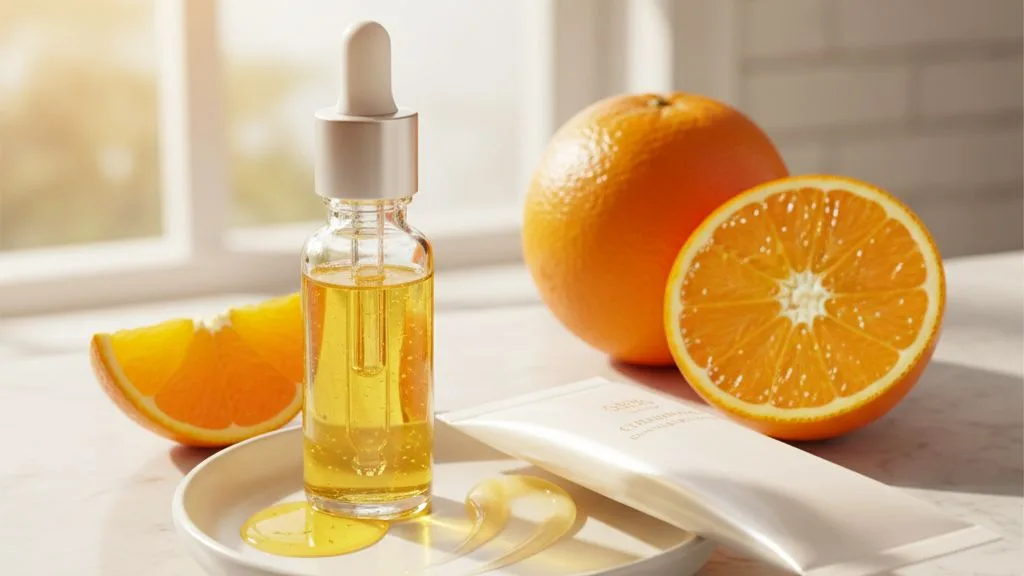The Skin Sin Everyone’s Guilty Of—Especially Those with Oily Skin
If there’s one skincare myth that refuses to die, it’s this: oily skin doesn’t need moisturiser. From humid summers to teen acne years, many believe skipping moisturiser will keep their skin matte and blemish-free. In reality, it’s a skin sin that can backfire—hard. This is one of the most persistent oily skin myths that continues to mislead people. Stripping your skin of hydration doesn’t stop oil production; instead, it can trigger the sebaceous glands to overcompensate, producing even more oil. The result? A shiny face that feels greasy, tight, and often, acne-prone.
Episode 5 of the Skin Sin Series | Oily Illusion | Hosted by Preeti Singh | Produced by Hale and Belle®
In this Article
- Oily Skin Myths: Why Moisturiser Is Still Essential
- What Happens When You Skip Moisturiser
- Hydration vs. Moisturisation: The Duo Your Skin Needs
- Ingredients That Make Moisturiser Oily-Skin Friendly
- How to Choose the Right Moisturiser for Oily Skin
- Editor-Curated Picks for Oily Skin
- Beginner-Friendly Oily Skin Routine
- FAQs
- Keep The Vibe Going
Oily Skin Myths: Why Moisturiser Is Still Essential

The logic seems simple—why add moisture to skin that already looks shiny? But oily skin often hides a deeper problem: dehydration.
When you skip moisturiser, your skin loses water, triggering an emergency response—more oil production. The result? A shinier forehead, clogged pores, and more breakouts.
Oily vs. Dehydrated Skin:
- Oily skin = excess sebum (oil)
- Dehydrated skin = lack of water (can happen even if oily)
You can have both at the same time—making moisturiser non-negotiable.
What Happens When You Skip Moisturiser
- Increased oiliness: Skin overcompensates for lost hydration.
- Makeup meltdown: Foundation slips off faster.
- Weakened barrier: More breakouts, redness, and dullness.
Hydration vs. Moisturisation: The Duo Your Skin Needs
- Hydration adds water to the skin.
- Moisturisation locks it in.
Think of it this way: a hydrating serum brings water in, while a moisturiser seals it. Without the latter, your skin loses hydration through transepidermal water loss (TEWL)—leading to irritation and greasy shine.
Ingredients That Make Moisturiser Oily-Skin Friendly
- Squalane (Not Squalene)
- Lightweight, non-comedogenic, and stable.
- Mimics natural sebum, regulates oil, and strengthens the barrier.
- Niacinamide
- Reduces excess oil.
- Minimises pores and boosts barrier function.
- Glycerin & Hyaluronic Acid
- Humectants that pull water into the skin.
- Hydrating without heaviness.
- Green Tea Extract
- Antioxidant + soothing for inflamed, acne-prone skin.
- Aloe Vera
- Lightweight, cooling, and perfect for hot climates.
- Lightweight Esters
- Silky texture enhancers like isohexadecane that don’t clog pores.
Curious about the difference between squalane and squalene, and why it matters for oily skin? Explore our in-depth guide on squalene here.
How to Choose the Right Moisturiser for Oily Skin
Look for:
- Gel-based or water-based formulas
- Non-comedogenic and oil-free labels
- Sebum-regulating actives (like niacinamide)
- Minimal fragrance to avoid irritation
Editor-Curated Picks for Oily Skin
Pilgrim Squalane Glow Moisturizer with Niacinamide & Vitamin C
A gel-cream hybrid powered by squalane and niacinamide. Hydrates, balances oil, and brightens—without clogging pores. Perfect for daily wear.
Moody AcneXpert Oil-Free Gel Moisturiser with Niacinamide & Green Tea
Weightless hydration + oil control. Niacinamide reduces shine, green tea calms acne, and hyaluronic acid locks in moisture.
Neutrogena Hydro Boost Hyaluronic Acid Water Gel
A cult favourite. Gel texture infused with hyaluronic acid for long-lasting, cooling hydration—dermatologist approved for oily skin.
Beginner-Friendly Oily Skin Routine
Morning Skincare Routine for Oily Skin:
- Gentle foaming cleanser
- Hydrating toner or essence
- Gel-based moisturiser with squalane + niacinamide
- Oil-free sunscreen
Nighttime Skincare Routine for Oily Skin:
- Gentle foaming cleanser
- Hydrating serum (hyaluronic acid or glycerin)
- Lightweight moisturiser with squalane or aloe vera
FAQs
A: Yes. Squalane is lightweight, non-greasy, and balances oil production without clogging pores.
A: Not in its raw form—it’s unstable. Skincare uses squalane, its stable version.
A: Squalane, niacinamide, glycerin, hyaluronic acid, aloe vera.
A: Yes. By hydrating skin, moisturiser signals oil glands to slow down.
Takeaway
Oily skin myths have long convinced people to skip moisturiser, but that’s a beauty blunder. The truth? The right lightweight hydrator won’t betray you—it will balance your skin, fortify your barrier, and even dial down that midday shine. So don’t ditch moisturiser; outsmart it with a formula that works for you.
Watch Preeti Singh — aesthetician, nutri-dermatologist, and founder of Bioclinic Kanpur — break down this skincare sin in our latest reel, only on Hale and Belle®.
Previously on Skin Sins:
- Episode 1: The Cleanser You Need to Break Up With: Why Makeup Wipes Are a Skincare Mistake
- Episode 2: Overusing Toner: The Silent Skincare Sin
- Episode 3: Skin Burnout & Skin Fasting: When Self‑Care Becomes Self‑Sabotage
- Episode 4: Damaged Skin Barrier After Facial? The Skincare Mistake No One Talks About
Want the latest scoop, exclusive deals, and skincare secrets? Follow us on WhatsApp and never miss a glow-up moment!




